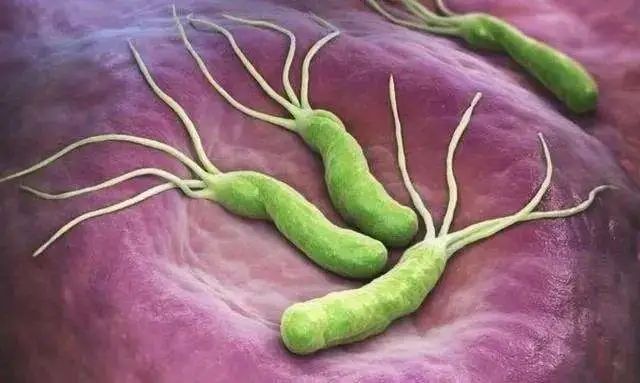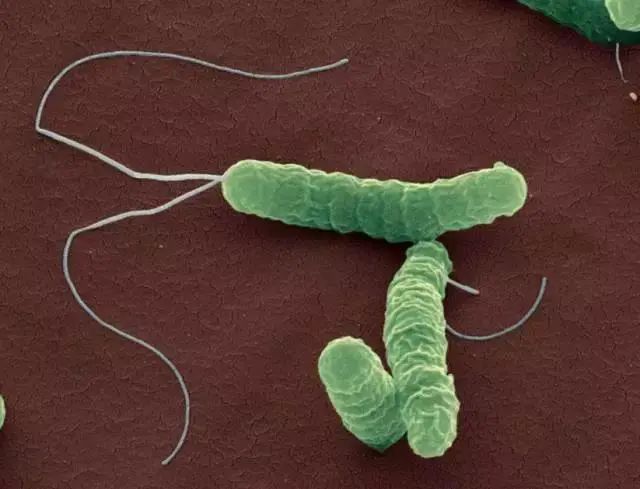
Hp
Recently, the U.S. Department of Health and Human Services released the 15th edition of the carcinogen report, in which 8 carcinogens were added, and Helicobacter pylori was listed as a definite carcinogen for the first time.
In China, the average infection rate of Helicobacter pylori is nearly 60%. Is there a high probability of cancer after being infected with this bacterium? What are its transmission routes? How to prevent it? Earlier, the reporter from the General Station interviewed the experts in the Department of Gastroenterology of Beijing Friendship Hospital affiliated to Capital Medical University on related issues.
How common is Helicobacter pylori?
According to related reports, Helicobacter pylori infection is the most common chronic bacterial infection in human beings, accounting for more than 50% of natural bacterial infections in the world. Among them, the infection rate in developing countries exceeds that in developed countries. There are obvious differences in the probability of Helicobacter pylori infection in different regions of China, with an average infection rate of 59%, of which the average infection rate of children is 40%.

△ Helicobacter pylori (data map)

Infection with Helicobacter pylori has a high risk of cancer?
It is a misunderstanding that there is a high risk of cancer if Helicobacter pylori is positive.
According to the current research, most people who are positive for Helicobacter pylori have no great harm and symptoms, and only 10% to 20% of infected people will have digestive tract ulcers. Less than 1% of infected people develop gastric mucosa-associated lymphoid tissue lymphoma, which may be at risk of canceration.

Most people infected with Helicobacter pylori have no clinical symptoms and complications.
Experts say that most people infected with Helicobacter pylori have no clinical symptoms and complications, and they can detect whether they are infected with Helicobacter pylori by using the most commonly used non-invasive methods, including carbon-13 or carbon-14 breath test.

Can helicobacter pylori be eradicated? How to eradicate it?
According to experts from the Department of Gastroenterology, Beijing Friendship Hospital, Helicobacter pylori can be eradicated. But first of all, we should evaluate whether there are indications for radical cure before we do treatment. Young people with no special family history and asymptomatic infected people are not recommended for eradication treatment. At present, bismuth-containing quadruple therapy has become the first-line treatment scheme to eradicate Helicobacter pylori. Experts suggest that to eradicate Helicobacter pylori, you should take medicine regularly according to the doctor’s advice.

How to prevent infection with Helicobacter pylori?
Helicobacter pylori is mainly transmitted through mouth-to-mouth and feces-to-mouth routes. Daily behaviors such as gathering, eating water or food infected by Helicobacter pylori, not washing hands after contact between humans and animals, kissing, and "mouth-to-mouth" feeding children may all be infected with Helicobacter pylori.

△ Data Map (Source/vision china)

Stay away from Helicobacter pylori, you should develop these habits.
Disinfect tableware and divide meals.
Do not eat raw or too hot food. They will stimulate the gastric mucosa and reduce its resistance, thus creating conditions for the invasion of Helicobacter pylori.
Don’t "mouth to mouth" feed. Some old people like to feed their children with food, which is one of the most easily contagious ways.
Wash your hands and clean your mouth in time.
High-risk groups should have regular physical examinations. The high-risk population of Helicobacter pylori should have gastroscopy every 2~3 years, and adults under 50 years old should have gastroscopy every 3 years. Those over 50 years old should do it every two years.
Source: CCTV News
Original title: "It is listed as a clear carcinogen! More than half of people in China are infected with this bacterium.
Read the original text
关于作者